Movies
Top 10 movies of 2021
Spielberg dazzles and Campion triumphs

As Hollywood struggled to adapt to the ongoing pandemic, 2021 brought us a surprisingly eclectic crop of movies – something clearly reflected by the Blade’s list of our 10 best-reviewed films of the year, which includes three musicals, three documentaries, and a western:
#10: tick, tick… BOOM!
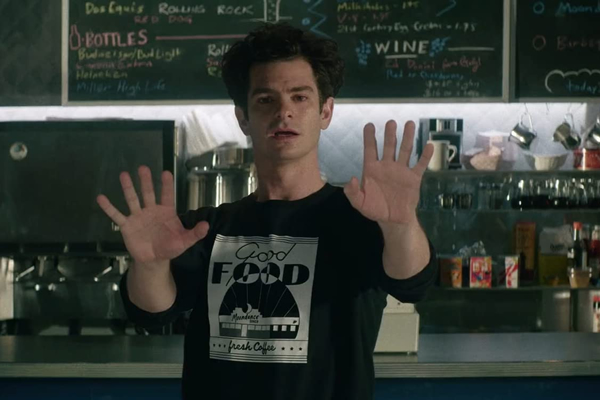
Lin-Manuel Miranda makes another appearance on the list with his feature directorial debut, this adaptation of an autobiographical work by “Rent” composer Jonathan Larson that is possibly the most perfect movie ever made for musical theater fans. Following the young Larson as he grapples with the dilemma of whether to give up his Broadway hopes for an easier life and a more secure future, it’s an explosively energetic love letter to musicals that celebrates the joy of theater while honoring the legacy of a groundbreaking artist taken too soon by tragedy. The outstanding cast (which includes Bradley Whitford as the late Stephen Sondheim and a who’s-who of Broadway legends showing up at every turn) is led by Andrew Garfield, who surpasses expectations with a tour-de-force performance as Larson.
#9: Ailey
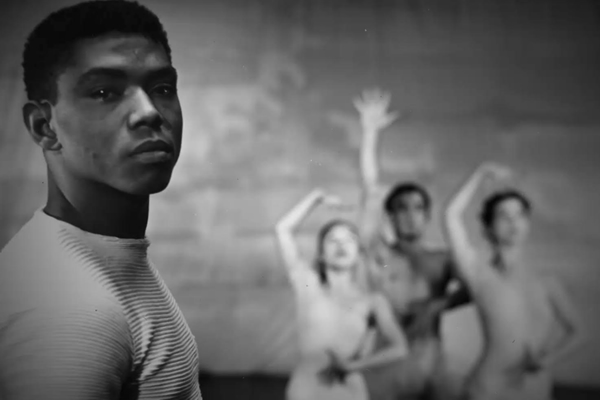
More than 30 years after his death, Alvin Ailey is still lauded as a trailblazing pioneer for his breathtakingly theatrical presentations exploring and uplifting Black experience in America – but even among dance aficionados, many people today would be hard-pressed to tell you much about his life. Jamila Wignot’s ethereal documentary attempts to correct that with a dreamy portrait of a genius who sublimated his entire being into the creation of his art – and better still, mines a bounty of exquisite performance footage to provide the gift of seeing dancers in motion as they execute the sheer visual poetry of his choreography.
#8: In the Heights

Onstage, Lin-Manuel Miranda’s first Broadway musical was an infectious celebration of community, infused with a generous spirit of hope and driven by an irresistible Latin beat. On film, director John M. Chu delivers all that and more with breathtaking cinematic vision and a healthy dose of “magical realism” that does nothing to undercut the material’s streetwise swagger. Recapturing the elusive charm of the old-school movie musical while asserting itself as a product of its own time, it spotlights a dazzlingly talented ensemble (led by Anthony Ramos in an eminently likable performance) and delivers the almost euphoric refreshment of seeing a major Hollywood film populated almost entirely by people of color. That alone is enough to make it one of the year’s most important movies.
#7: Swan Song
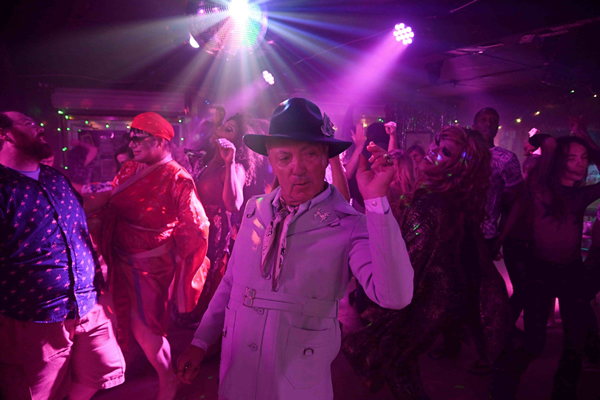
From director Todd Stephens comes this unexpected delight of an indie comedy, featuring underground cinema icon Udo Kier as “Mr. Pat,” an elderly hairdresser who breaks out of his nursing home to style a former client’s hair for her funeral. The improbably cast but brilliant star delivers a master class in subtlety and shade that ceaselessly entertains us as he sashays his way through a small-town odyssey that doubles as a meditation on the forgotten fabulosity of our queer elders – reminding us how much they’ve lived through, how much we owe them, and how much they still have to offer, all while keeping an irresistible smile on our face.
#6: Benedetta
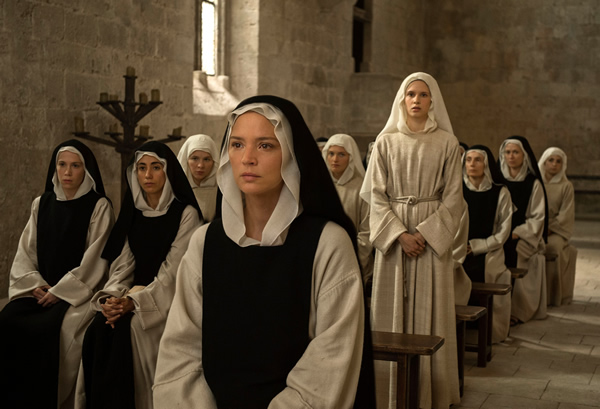
Veteran Dutch filmmaker Paul Verhoeven returns in top form with this slice of obscure-but-true history about the rise and fall of a 17th century nun, heralded as a prophet because of her intense religious visions until a secret lesbian affair draws the ire of the church hierarchy. True to the “Showgirls” director’s reputation as a provocateur, it’s a blend of social satire, psycho-sexual themes, graphic violence, and near-exploitation-level erotic imagery – but it’s also full of sly observations about religious hypocrisy, systemic oppression, and the way white heterosexual cisgender men keep the deck eternally stacked in their own favor.
#5: Wojnarowicz: F*ck You F*ggot F**ker

Chris McKim’s documentary about iconic AIDS-era artist David Wojnarowicz is comprehensive, immersive, and heavy with the almost corporeal substance of the late artist himself, a valuable historical chronicle made possible by the intensity with which he recorded his own life – and the skill with which McKim compiles that material to deliver him to us nearly three decades after his death. Revealing Wojnarowicz as an incendiary rebel who saw his own body as a weapon against a cruel and indifferent establishment, McKim honors him with a powerful film that not only informs, but inspires us to take up the torch of its subject’s righteous rage.
#4: Saint-Narcisse

The latest film from Bruce LaBruce is a deliciously subversive adult fairy tale set in the 1970s, in which a selfie-snapping narcissist reunites with his long-lost mother and goes on a quest to rescue his twin brother from a monastery where he is being kept as a sex slave. A blasphemous web of sex, incest, and revenge, it’s a campy, unabashedly queer psychosexual thriller that proves the iconoclastic Canadian director still delights in pushing our buttons. At the same time, it’s a sly satire of our modern, self-obsessed culture that forces us to question societal norms – and a welcome reminder that queer cinema can still be transgressive.
#3: Velvet Underground

Todd Haynes’ lavishly immersive chronicle of the proto-punk band that rose to ephemeral fame in Manhattan’s Warhol-dominated art world of the 1960s is more than just a music documentary, it’s a piece of pure cinema that exemplifies its genre while transcending it entirely. The veteran queer director doesn’t just give us the story of the Velvets in sights and sounds, he transports us to the time and place that allowed them to exist via a seamless blend of visuals, words, history, and, above all, music, providing a total sensory experience that feels like a direct portal into the era itself.
#2: The Power of the Dog
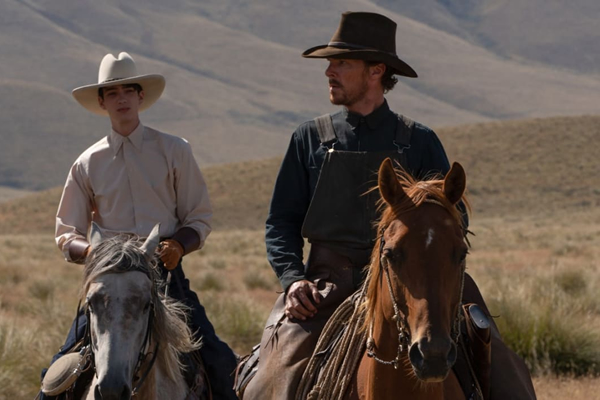
Jane Campion’s elegiac western has garnered awards buzz for good reason. In its character study of a domineering rancher who browbeats everyone around him until long-repressed feelings are sparked by his brother’s “sensitive” new stepson, her movie subverts more than one toxic trope, deconstructing the myth of the hyper-masculine cowboy hero while leaning into our pre-conditioned expectations about queer romantic narratives to set up a perversely satisfying surprise ending right before our eyes. With a powerhouse performance by Benedict Cumberbatch at its center, and boosted by sumptuous location cinematography, this visually eloquent period drama draws us in and leaves us shaken like few American films in recent memory.
#1: West Side Story
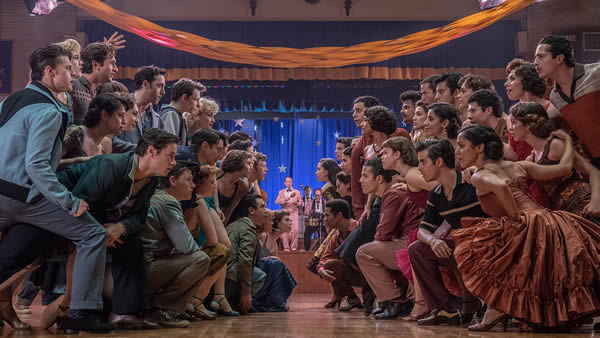
Steven Spielberg’s remount of Bernstein and Sondheim’s musical retelling of “Romeo and Juliet” achieves what doubters assumed would be impossible: a rendering that succeeds in bringing a contemporary sensibility to the classic material while leaving it fundamentally unchanged. Sumptuously re-staging this stylized 1950s story of racial conflict and violence for a more evolved era, it’s a new adaptation in which Spielberg’s unparalleled fluency in visual storytelling blends with Tony Kushner’s literate expansion of the original script for an effort that celebrates the original masterpiece while transforming it into something thrillingly new – and showcasing a spectacularly talented young cast, to boot. Purists may quibble and racists may be triggered by the purposeful omission of subtitles in Spanish-language scenes – but this career-capping triumph deserves all its accolades, nonetheless.
Movies
A ‘Battle’ we can’t avoid
Critical darling is part action thriller, part political allegory, part satire

When Paul Thomas Anderson’s “One Battle After Another” debuted on American movie screens last September, it had a lot of things going for it: an acclaimed Hollywood auteur working with a cast that included three Oscar-winning actors, on an ambitious blockbuster with his biggest budget to date, and a $70 million advertising campaign to draw in the crowds. It was even released in IMAX.
It was still a box office disappointment, failing to achieve its “break-even” threshold before making the jump from big screen to small via VOD rentals and streaming on HBO Max. Whatever the reason – an ambivalence toward its stars, a lack of clarity around what it was about, divisive pushback from both progressive and conservative camps over perceived messaging, or a general sense of fatigue over real-world events that had pushed potential moviegoers to their saturation point for politically charged material – audiences failed to show up for it.
The story did not end there, of course; most critics, unconcerned with box office receipts, embraced Anderson’s grand-scale opus, and it’s now a top contender in this year’s awards race, already securing top prizes at the Golden Globe and Critics’ Choice Awards, nominated for a record number of SAG’s Actor Awards, and almost certain to be a front runner in multiple categories at the Academy Awards on March 15.
For cinema buffs who care about such things, that means the time has come: get over all those misgivings and hesitations, whatever reasons might be behind them, and see for yourself why it’s at the top of so many “Best Of” lists.
Adapted by Anderson from the 1990 Thomas Pynchon novel “Vineland,” “One Battle” is part action thriller, part political allegory, part jet-black satire, and – as the first feature film shot primarily in the “VistaVision” format since the early 1960s – all gloriously cinematic. It unspools a near-mythic saga of oppression, resistance, and family bonds, set in an authoritarian America of unspecified date, in which a former revolutionary (Leonardo DiCaprio) is attempting to raise his teenage daughter (Chase Infiniti) under the radar after her mother (Teyana Taylor) betrayed the movement and fled the country. Now living under a fake identity and consumed by paranoia and a weed habit, he has grown soft and unprepared when a corrupt military officer (Sean Penn) – who may be his daughter’s real biological father – tracks them down and apprehends her. Determined to rescue her, he reconnects with his old revolutionary network and enlists the aid of her karate teacher (Benicio Del Toro), embarking on a desperate rescue mission while her captor plots to erase all traces of his former “indiscretion” with her mother.
It’s a plot straight out of a mainstream action melodrama, top-heavy with opportunities for old-school action, sensationalistic violence, and epic car chases (all of which it delivers), but in the hands of Anderson – whose sensibilities always strike a provocative balance between introspection, nostalgia, and a sense of apt-but-irreverent destiny – it becomes much more intriguing than the generic tropes with which he invokes to cover his own absurdist leanings.
Indeed, it’s that absurdity which infuses “One Battle” with a bemusedly observational tone and emerges to distinguish it from the “action movie” format it uses to relay its narrative. From DiCaprio (whose performance highlights his subtle comedic gifts as much as his “serious” acting chops) as a bathrobe-clad underdog hero with shades of The Dude from the Coen Brothers’ “The Big Liebowski,” to the uncomfortably hilarious creepy secret society of financially elite white supremacists that lurks in the margins of the action, Anderson gives us plenty of satirical fodder to chuckle about, even if we cringe as we do it; like that masterpiece of too-close-to-home political comedy, Stanley Kubrick’s 1964 nuclear holocaust farce “Dr. Strangelove,” it offers us ridiculousness and buffoonery which rings so perfectly true in a terrifying reality that we can’t really laugh at it.
That, perhaps, is why Anderson’s film has had a hard time drawing viewers; though it’s based on a book from nearly four decades ago and it was conceived, written, and created well before our current political reality, the world it creates hits a little too close to home. It imagines a roughly contemporary America ruled by a draconian regime, where immigration enforcement, police, and the military all seem wrapped into one oppressive force, and where unapologetic racism dictates an entire ideology that works in the shadows to impose its twisted values on the world. When it was conceived and written, it must have felt like an exaggeration; now, watching the final product in 2026, it feels almost like an inevitability. Let’s face it, none of us wants to accept the reality of fascism imposing itself on our daily lives; a movie that forces us to confront it is, unfortunately, bound to feel like a downer. We get enough “doomscrolling” on social media; we can’t be faulted for not wanting more of it when we sit down to watch a movie.
In truth, however, “One Battle” is anything but a downer. Full of comedic flourish, it maintains a rigorous distance that makes it impossible to make snap judgments about its characters, and that makes all the difference – especially with characters like DiCaprio’s protective dad, whose behavior sometimes feels toxic from a certain point of view. And though it’s a movie which has no qualms about showing us terrifying things we would rather not see, it somehow comes off better in the end than it might have done by making everything feel safe.
“Safe” is something we are never allowed to feel in Anderson’s outlandish action adventure, even at an intellectual level; even if we can laugh at some of its over-the-top flourishes or find emotional (or ideological) satisfaction in the way things ultimately play out, we can’t walk away from it without feeling the dread that comes from recognizing the ugly truths behind its satirical absurdities. In the end, it’s all too real, too familiar, too dire for us not to be unsettled. After all, it’s only a movie, but the things it shows us are not far removed from the world outside our doors. Indeed, they’re getting closer every day.
Visually masterful, superbly performed, and flawlessly delivered by a cinematic master, it’s a movie that, like it or not, confronts us with the discomforting reality we face, and there’s nobody to save it from us but ourselves.
Movies
Few openly queer nominees land Oscar nominations
‘Sinners’ and ‘One Battle After Another’ lead the pack
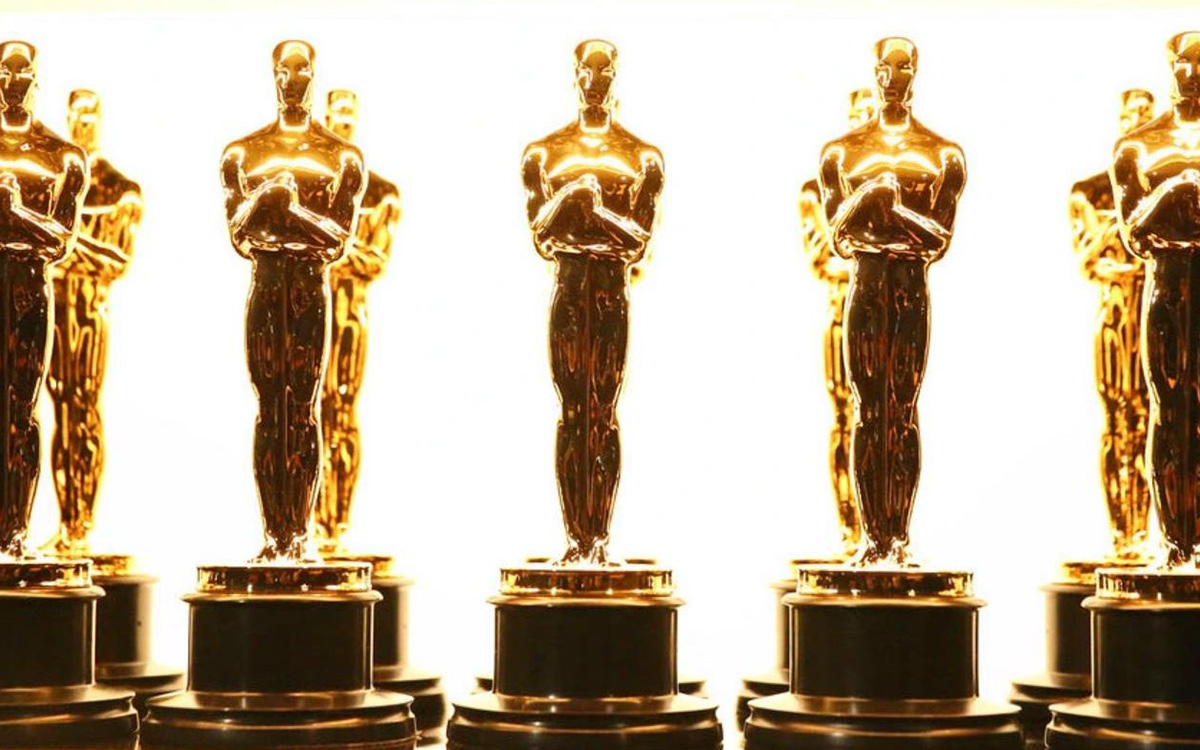
This year’s Oscar nominees feature very few openly queer actors or creatives, with “KPop Demon Hunters,” “Come See Me in the Good Light,” and “Elio” bringing some much-needed representation to the field.
“KPop Demon Hunters,” which quickly became a worldwide sensation after releasing on Netflix last June, was nominated for best animated feature film and best original song for “Golden,” the chart-topping hit co-written by openly queer songwriter Mark Sonnenblick. “Come See Me in the Good Light,” a film following the late Andrea Gibson and their wife, Megan Falley, was nominated in the best documentary feature category. Finally, Pixar’s “Elio” (co-directed by openly queer filmmaker Adrian Molina) was nominated for best animated feature film alongside “Zootopia 2,” “Arco,” and “Little Amélie or the Character of Rain.”
Ethan Hawke did manage to land a best actor nomination for his work in Richard Linklater’s “Blue Moon,” a biopic that follows a fatal night in Lorenz Hart’s life as he reckons with losing his creative partner, Richard Rodgers. Robert Kaplow was also nominated for best original screenplay for penning the script. Amy Madigan, as expected, was recognized in the best supporting actress category for her work in “Weapons,” bringing celebrated gay icon Aunt Gladys to the Oscar stage.
While “Wicked: For Good” was significantly underperforming throughout the season, with Cynthia Erivo missing key nominations and the film falling squarely out of the best picture race early on, most pundits expected the film to still receive some recognition in craft categories. But in perhaps the biggest shock of Oscar nomination morning, “For Good” received zero nominations — not even for costume design or production design, the two categories in which the first film won just last year. Clearly, there was “Wicked” fatigue across the board.
There was also reasonable hope that Eva Victor’s acclaimed directorial debut, “Sorry, Baby,” would land a best original screenplay nod, especially after Julia Roberts shouted out Victor during the recent Golden Globes (which aired the day before Oscar voting started). A24, the studio that distributed “Sorry, Baby” in the U.S., clearly prioritized campaigns for “Marty Supreme” (to much success) and Rose Byrne in “If I Had Legs I’d Kick You,” leaving “Sorry, Baby” the indie darling that couldn’t quite crack the Oscar race.
However, with the Film Independent Spirit Awards taking place on Feb. 15, queer films like “Sorry, Baby,” “Peter Hujar’s Day,” and “Twinless” will finally get their time to shine. Maybe these films were just underseen, or not given a big enough PR push, but regardless, it’s unfortunate that the Academy couldn’t make room for just one of these when “Emilia Pérez” managed 13 nominations last year.
Movies
Rise of Chalamet continues in ‘Marty Supreme’
But subtext of ‘American Exceptionalism’ sparks online debate
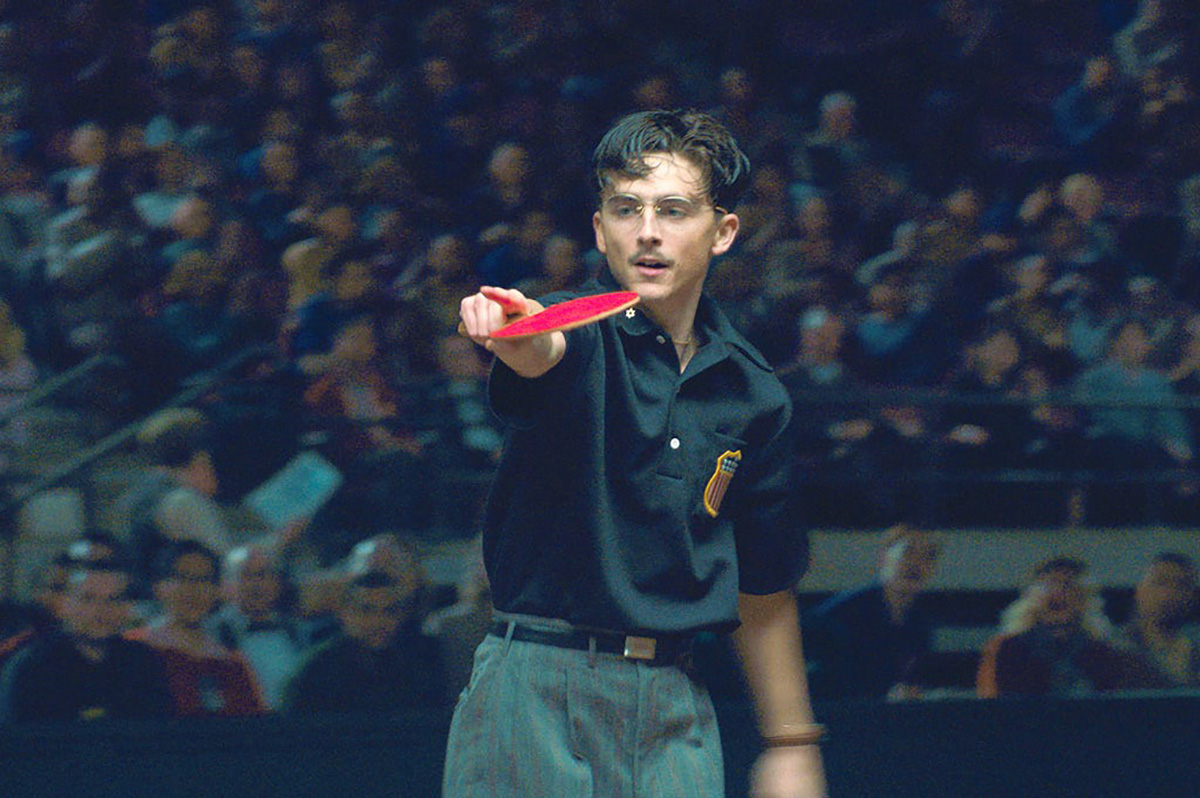
Casting is everything when it comes to making a movie. There’s a certain alchemy that happens when an actor and character are perfectly matched, blurring the lines of identity so that they seem to become one and the same. In some cases, the movie itself feels to us as if it could not exist without that person, that performance.
“Marty Supreme” is just such a movie. Whatever else can be said about Josh Safdie’s wild ride of a sports comedy – now in theaters and already racking up awards – it has accomplished exactly that rare magic, because the title character might very well be the role that Timothée Chalamet was born to play.
Loosely based on real-life table tennis pro Marty Reisman, who published his memoir “The Money Player” in 1974, this Marty (whose real surname is Mauser) is a first-generation American, a son of Jewish immigrant parents in post-WWII New York who works as a shoe salesman at his uncle’s store on the Lower East Side while building his reputation as a competitive table tennis player in his time off. Cocky, charismatic, and driven by dreams of championship, everything else in his life – including his childhood friend Rachel (Odessa A’zion), who is pregnant with his baby despite being married to someone else – takes a back seat as he attempts to make them come true, hustling every step of the way.
Inevitably, his determination to win leads him to cross a few ethical lines as he goes – such as stealing money for travel expenses, seducing a retired movie star (Gwyneth Paltrow), wooing her CEO husband (Kevin O’Leary) to sponsor him, and running afoul of the neighborhood mob boss (veteran filmmaker Abel Ferrara) – and a chain of consequences piles at his heels, threatening to undermine his success before it even has a chance to happen.
Filmed in 35mm and drenched in the visual style of the gritty-but-gorgeous “New Hollywood” cinema that Safdie – making his solo directorial debut without the collaboration of his brother Benny – so clearly seeks to evoke, “Marty Supreme” calls up unavoidable connections to the films of that era with its focus on an anti-hero protagonist trying to beat the system at its own game, as well as a kind of cynical amorality that somehow comes across more like a countercultural call-to-arms than a nihilistic social commentary. It’s a movie that feels much more challenging in the mid-2020s than it might have four or so decades ago, building its narrative around an ego-driven character who triggers all our contemporary progressive disdain; self-centered, reckless, and single-mindedly committed to attaining his own goals without regard for the collateral damage he inflicts on others in the process, he might easily – and perhaps justifiably – be branded as a classic example of the toxic male narcissist.
Yet to see him this way feels simplistic and reductive, a snap value judgment that ignores the context of time and place while invoking the kind of ethical purity that can easily blind us to the nuances of human behavior. After all, a flawed character is always much more authentic than a perfect one, and Marty Mauser is definitely flawed.
Yet in Chalamet’s hands, those flaws become the heart of a story that emphasizes a will to transcend the boundaries imposed by the circumstantial influences of class, ethnicity, and socially mandated hierarchy. His Marty is a person forging an escape path in a world that expects him to “know his place,” who is keenly aware of the anti-semitism and cultural conventions that keep him locked into a life of limited possibilities and who is willing to do whatever it takes to break free of them; and though he might draw our disapproval for the choices he makes, particularly with regard to his relationship with Rachel, he grows as he goes, navigating a character arc that is less interested in redemption for past sins than it is in finding the integrity to do better the next time – and frankly, that’s something that very few toxic male narcissists ever do.
In truth, it’s not surprising that Chalamet nails the part, considering that it’s the culmination of a project that began in 2018, when Safdie gave him Reisman’s book and suggested collaborating on a movie based on the story of his rise to success. The actor began training in table tennis, and continued to master it over the years, even bringing the necessary equipment to location shoots for movies like “Dune” so that he could perfect his skills – but physical skill aside, he always had what he needed to embody Marty. This is a character who knows what he’s got and is not ashamed to use it, who has the drive to succeed, the will to excel, and the confidence to be unapologetically himself while finding joy in the exercise of his talents, despite how he might be judged by those who see only ego. If any actor could be said to reflect those qualities, it’s Timothée Chalamet.
Other members of the cast also score deep impressions, especially A’zion, whose Rachel avoids tropes of victimhood to achieve her own unconventional character arc. Paltrow gives a remarkably vulnerable turn as the aging starlet who willingly allows Marty into her orbit despite the worldliness that tells her exactly what she’s getting into, while O’Leary embodies the kind of smug corporate venality that instantly positions him as the avatar for everything Marty is trying to escape. Queer fan-fave icons Fran Drescher and Sandra Bernhard also make small-but-memorable appearances, and real-life deaf table tennis player Koto Kawaguchi strikes a noble chord as the Japanese champion who becomes Marty’s de facto rival.
As for Safdie’s direction, it’s hard to find anything to criticize in his film’s visually stylish, sumptuously photographed (by Darius Khondji), and tightly paced delivery, which makes its two-and-a-half hour runtime fly by without a moment of drag.
It must be said that the screenplay – co-written by Safdie with Ronald Bronstein – leans heavily into an approach in which much of the plot hinges on implausible coincidences, ironic twists, and a general sense of orchestrated chaos that makes things occasionally feel a little too neat in the service of creating an outlandish “tall tale” narrative ; but let’s face it, life is like that sometimes, so it’s easy to overlook.
What might be more problematic, for some audiences, is Marty’s often insufferable – and occasionally downright ugly behavior. Yes, Chalamet infuses it all with humanizing authenticity, and the story is ultimately more about the character’s emotional evolution than it is about his winning at ping-pong, but it’s impossible not to read a subtext of American Exceptionalism into his winner-takes-all climb to victory – which is why “Marty Supreme,” for all its critical acclaim, is the subject of heated debate and outrage on social media right now.
As for us, we’re not condoning anything Marty does or says as he hustles his way to the winner’s circle. All we’re saying is that Timothée Chalamet has become an even better actor since he captured our attention (and a lot of gay hearts) in “Call Me By Your Name.”
And that’s saying a lot, because he was pretty great, even then.




















